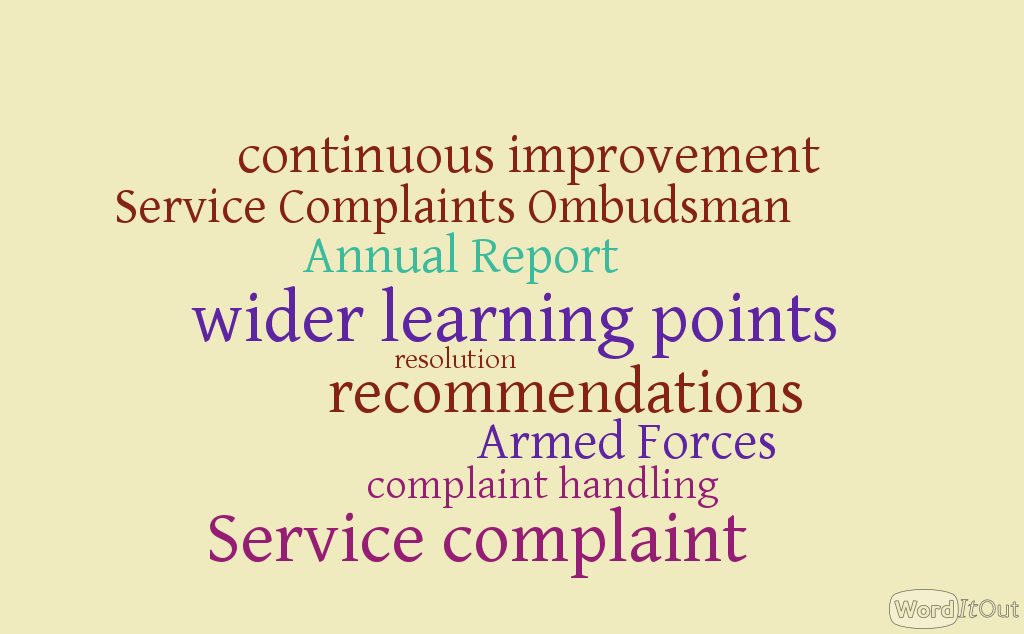The role of an Ombudsman is not only to carry out investigations but to make recommendations. In addition to the recommendations I make each year in my Annual Report, I have the power to make recommendations in individual cases as part of my findings. In this blog I will be explaining more about this particular power, the types of recommendations we make and what happens once the recommendations have been made.
Every case that is handled by my office starts with an application. If an individual is requesting that I use my powers of review or investigation and their application is accepted, this will culminate in a final decision report. The legislation that established my office requires that any recommendations relating to the finding are included as part of that report.
The purpose of these recommendations is to set out what I, as the Ombudsman, consider to be appropriate redress or other action that I think should be taken to address the wrong. The type of recommendations that are made will depend on the type of investigation that has been carried out and the specifics of the individual case and the wrong that has been found.

For example, where undue delay has been found in the handling of a Service complaint we might recommend that the investigation is completed by a specific date. If there have been no updates given to the complainant, or they have been of poor quality throughout the process then a recommendation might be made that timely and informative updates are provided to the complainant until the complaint is resolved.
If the investigation concerns maladministration, we might recommend that an apology is given to the complainant for errors in handling or a consolatory payment is an appropriate remedy. In the case of the latter, I do not recommend an amount of payment to be paid as I explained in my previous blogs on redress and financial remedy.
As the name suggests, these are recommendations only and they are not binding on the Services in the way my findings are. However, this does not mean that they can simply be ignored and the work in my office certainly doesn’t stop once a report is issued.
Upon receiving the final decision, the Service secretariat is required to consider the recommendations and provide an update to both my office and the complainant on any action taken. If a recommendation cannot be implemented as set out in the report, the Services will liaise with my Policy Manager and explain the reasons for this and provide an alternative proposal for me to agree. If the recommendation I have made is not accepted at all, and no alternative is proposed, the Service is required to notify me of this in writing outlining the reasons why the recommendation cannot be implemented and I would notify the Secretary of State for Defence. Therefore a recommendation can only be rejected where there are very good reasons why it cannot be implemented. If one of my recommendations was rejected without reasons being given, or I felt the reasons provided were not sufficient, the Service in question would be challenged. We have not yet had to face these issues, which illustrates how seriously the Services treat my recommendations.
Some recommendations are easy to implement and can be done so in a short space of time. Others require a longer period to implement and the Services are required to keep updating my office until they have been implemented in full.
In addition to recommendations, reports from my office often include what we refer to as “wider learning points”. These are similar to recommendations, but rather than applying to the specific case they are more general and relate to the Service complaints process itself. The purpose of these points is to try and address the root cause of a Service complaint so that the issues do not continue and give rise to further complaints. Examples of such learning points include:
- ensuring complainants are advised of their statutory right to appeal an admissibility decision to the Ombudsman and the timelines to do so
- obtaining and providing legal advice d in a timely manner
- implementing processes to ensure that Service complaints continue to be processed when personnel are absent or have an additional work load
Wider learning points are not a legislative requirement, therefore they are not binding and there is no onus on the Services to update me or notify me if they are not accepted. However, I have found that in the spirit of working to improve the process that each of the Services has been willing to treat these as they do my recommendations. A year and a half in, we are starting to see improvements in some areas, such as the quality of decision letters being issued, and I have been able to raise awareness of other issues in my Annual Report and discussions with Service Chiefs.
Recommendations are a core part of the work that we do and essential to ensuring action is taken following a decision. My office will continue to work to ensure that the recommendations we make are clear, consistent and meaningful and that the themes arising from the work undertaken by my office feed into the broader recommendations I make each year in my Annual Report.
Update 16th April 2020: The Ombudsman has the power to recommend redress as quantifiable or non-quantifiable consolatory payments to the Services. The onus will always be placed on the Services to decide the amount; not SCOAF. For more information read SCOAF Financial Remedy Guidelines (205 KB)